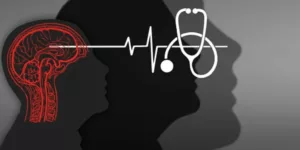In June this year, California announced that it would provide an extra $518.5 million of funding to support people with mental health and substance abuse problems, including those who are street homeless.
The announcement comes as a response to the nation’s deepening mental health crisis, which has seen rates of drug overdose and suicide soar. From October 2020 to September 2021, over 99,500 people died from a drug overdose, an increase of 45% from the previous year. National overdose deaths involving cocaine rose by 44%, and those involving alternative psychostimulants (such as meth) rose 93% in two years.
In California alone, over 10,000 people died from a drug overdose in the past year, a 70% increase from the previous annual rate. Fentanyl accounts for 53% of those deaths, totaling 3974 deaths in 2020.
Experts argue that the pandemic has been a driving factor in these deaths. Job loss, school closings, clinic closures, reduced clinic hours, and other changes have left people isolated and without access to support. Financial and mental stress, along with a loss of social connections, have caused more people to turn to drug abuse. It’s also contributed to a proliferation of other mental health issues.
CARE Court Program
In response to the overdose and mental health crisis, California’s governor launched the CARE Court program. The CARE Court program aims to connect a person in crisis with a court-ordered Care Plan for up to 12 months or 24 months. It offers individuals a community-based set of services that reflects their cultural and linguistic needs, including short-term medications, recovery support, and access to housing. Proponents emphasize the importance of stable housing in a recovery plan – offering stable and long-term treatment is almost impossible when someone is living on the streets, in a tent, or in a car.
As part of the CARE Court program, the extra half a billion dollars of funding will provide treatment beds for over 1000 people at a time, as well as behavioral and other health services. It will help to expand mental health housing across California, reaching those who are most in need.
CARE Court Funding
CARE Court funding isn’t intended for everybody who is homeless or living with mental illness. Instead, it’s directed towards people with mental disorders that meet specific criteria, aiming to intervene before they are arrested or require inpatient treatment. It aims to put people who are suffering from treatable health conditions on the path to recovery – and a better future.
The grants will be distributed through the Department of Health Care Service’s Behavioral Health Continuum Infrastructure Program, with each county receiving a designated reward. Grants were awarded as follows:
- Alameda County – $18,405,122
- El Dorado County – $2,852,182
- Humboldt County – $4,170,560
- Kern County – $3,138,065
- Los Angeles County – $155,172,811
- Madera County – $2,035,512
- Mendocino County – $7,711,800
- Monterey County – $3,558,670
- Nevada County – $4,458,799
- Orange County – $10,000,000
- Placer County – $6,519,015
- Riverside County – $103,181,728
- Sacramento County – $30,553,889
- San Diego County – $30,874,411
- San Francisco County – $6,750,000
- Santa Barbara County – $2,914,224
- Santa Clara County – $54,074,660
- Solano County – $14,332,411
- Sonoma County – $9,751,915
- Stanislaus County – $33,369,900
- Yolo County – $12,500,000
During the latest grant announcement, the Governor met with families who were affected by mental illness and homelessness. Many of their loved ones could be helped by the CARE Court program. The Governor listened to their experiences and set out the actions that California is taking to address the crisis.
He explained that the crisis on California streets is at a breaking point, with a growing number of residents struggling with substance abuse and mental health disorders – and ending up on the street. He highlighted the need for a clear change in strategy, describing how the new grants are a crucial step in reworking the state’s approach to homelessness and mental illness.
Five Stages of the Care Plan
According to the CARE Court website, the novel approach will involve five key stages.
Referral
Individuals may be submitted to the scheme through a referral to the court by a family member, first responder, behavioral health provider, or any other approved party. Any individual with untreated schizophrenia spectrum or other psychotic disorder with limited decision-making capacities is eligible.
Clinical Evaluation
In the second stage, the civil court requests a clinical evaluation of the individual’s case and appoints a public defender and official supporter. After reviewing and approving the application, the court asks for the development of a care plan.
Care Plan
The country’s behavioral health team, participants, and supporters collectively develop the Care Plan, encompassing recovery treatment, medication, and a housing scheme. The Court reviews the plan and adopts it for up to 12 months.
Support
The county behavioral health team, the supporter, and the participant continually evaluate and improve the Care Plan as required. They may refer to a Mental Health Advance Directive if there are any future challenges. The program may be extended by another 12 months.
Success
By the end of a successful program, the participant will graduate from the plan with the mental wellness and social stability they need to continue to build their future. The participant can access continued treatment, support services, and community housing to promote long-term recovery.
Aims of the Care Plan
In full, the care plan aims to ensure that support and services are tailored to the unique needs of each individual. It works to coordinate social and medical resources – offering clinical treatment and housing simultaneously – to provide holistic and comprehensive support.
Written by Rida Sheppard








